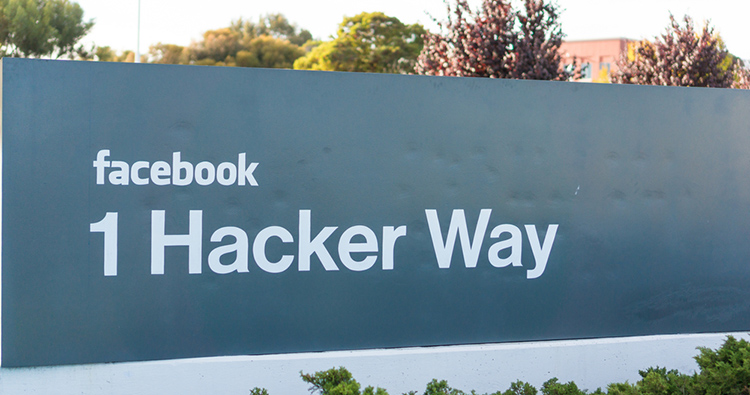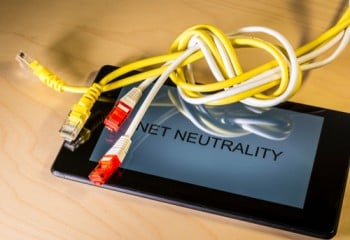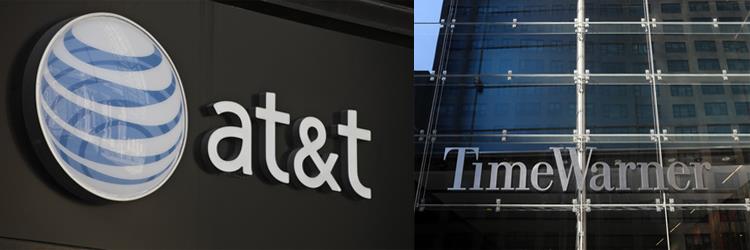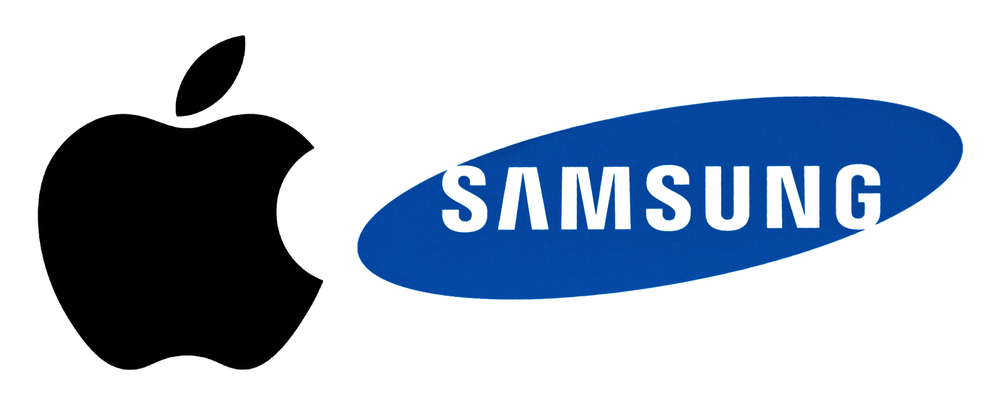2018's most important legal tech stories

Shutterstock
What were 2018's most important legal tech stories? ABA Journal legal affairs writer Jason Tashea takes a look back on the biggest news in law and technology, including Facebook’s never-ending missteps, the creation of new data privacy standards and the destruction of federal net neutrality.
1. The Fourth Amendment evolves for a digital era.
One of the year’s U.S. Supreme Court barnburners was U.S. v. Carpenter, where a 5-4 court found that a warrant was necessary when seeking geolocation data about a suspect from a service provider.
“Given the unique nature of cellphone location records, the fact that the information is held by a third party does not by itself overcome the user’s claim to Fourth Amendment protection,” Chief Justice John G. Roberts Jr. wrote in the majority opinion.
At the ABA Annual Meeting in Chicago this year, Electronic Privacy Information Center senior counsel Alan Butler told the ABA Journal that Carpenter is a major inflection point for the Fourth Amendment.
“I think many will look back on Fourth Amendment cases as before Carpenter and after Carpenter,” he said.
Even with this win for privacy advocates, there are plenty of unresolved issues as law enforcement agencies wrangle with technology and their search powers. For example, it was reported this year that the FBI and police in North Carolina are using “reverse” search warrants to collect cellphone location data of individuals near crime scenes. These warrants lack specificity and do not identify suspects.
2. Data protection gets some teeth.
Speaking of inflection points, data privacy got one May 25, when the European Union’s General Data Protection Regulation went into effect.
The GDPR, which replaced a 1995 EU directive, covers topics as diverse as a right to be forgotten and an individual’s ability to confront automated decision-making systems.
Enforcement of the law will be done through data protection authorities, which are government agencies in the EU member states. Failure to comply could be devastating—a company could be fined up to 4 percent of its global annual revenue.
In June, California passed the California Consumer Privacy Act of 2018, the country’s strictest consumer privacy law.
The law applies to any company that does business in California and has gross revenues above $25 million; annually buys, receives or sells personal information of 50,000 or more consumers, households or devices; or derives 50 percent or more of its annual revenue from selling personal information.
Tracking parts of the EU’s GDPR, the CCPA gives consumers access to their data, the power to have that data deleted and the ability to opt out of having their data sold. California passed a separate law protecting the data collected and transmitted by internet-enabled devices.
The need for these laws and smarter cybersecurity was underscored by the hack of hotel company Marriott International revealed in November, which spilled the data of as many as 500 million customers, ranging from names to contact information to passport numbers. Experts told Wired the breach was as big as it was because it went on for about four years; it was a vulnerability Marriott inherited when it bought Starwood Hotels and Resorts Worldwide in 2016.
3. Facebook’s terrible, horrible, no good, very bad year.

Shutterstock
Already under fire for its role propagating misinformation that may have affected the 2016 presidential election, Facebook got more bad news this year.
In March, the New York Times detailed the links between the social network giants and London-based Cambridge Analytica, a consulting firm that had been involved with the presidential campaigns of U.S. Sen. Ted Cruz (R-Texas) and then-candidate Donald Trump. The company had access to personal data of about 87 million Facebook users and was able to mine that data in order to better target potential voters.
Shortly after this news broke, the Federal Trade Commission opened an investigation into Facebook’s privacy practices. The results of that investigation are still forthcoming. Company CEO Mark Zuckerberg and Chief Operating Officer Sheryl Sandberg have since testified in front of Congress and the European Parliament.
In December, a British Parliamentary committee made public internal Facebook emails illustrating how the company would favor some companies and punish others. Reaction was harsh on both sides of the Atlantic. Claude Moraes, a member of the European Parliament, called for tougher regulations of the “possible monopoly” of social media giants.
In the states, Columbia University law professor Tim Wu Tweeted that the recent revelations should bring more attention to Facebook’s antitrust and anti-competitive behavior.
The antitrust / competition implications of the latest Facebook revelations need be discussed more by the media. Among other things, I think they clearly add to the case that the acquisition of WhatsApp was illegal; also suggest exclusionary conduct against Twitter/Vine
— Tim Wu (@superwuster) December 5, 2018
4. Net neutrality, we hardly knew ye.

Shutterstock
On June 11, net neutrality ceased to exist at the federal level.
Originally passed in 2015 and upheld by the U.S. Court of Appeals for the D.C. Circuit in 2016, the rules required that internet service providers like AT&T and Comcast treat all web traffic equally. This meant that, for example, providers would not be allowed to “throttle” or change the speed with which a person accesses a website. The repeal allows ISPs to block or slow some online traffic. In other cases, the provider can negotiate with a website for “fast lanes” to users.
There was a last-minute attempt by Congress to save the rule. While the Senate passed a bill in a rare showing of bipartisan support, the legislation did not gain traction in the House.
With no federal rules on the books, California passed its own net neutrality law this year. The Department of Justice sued to stop the state’s rules from going into effect. The case is ongoing.
California is not alone. Governors in six states signed executive orders supporting net neutrality principles and three states enacted net neutrality legislation this year, according to the National Conference of State Legislatures.
5. Trump makes a Chinese phone company great again.
Chinese telecom company ZTE Corp. was saved from collapse this year.
The company, which uses American technology, pleaded guilty in 2017 to exporting that technology to Iran and North Korea, agreeing to pay a $1.19 billion penalty. In April, the U.S. Department of Commerce determined that ZTE made false statements on its compliance documents. This led the U.S. to ban American companies from exporting products to ZTE for seven years. In response, ZTE suspended its major operations.
In May, President Donald Trump stated he would work with Chinese president Xi Jinping to end the ban. Under a new settlement, the ban was lifted in July.
The Senate version of the National Defense Authorization Act for Fiscal Year 2019 blocked the settlement, but a similar bill in the House that the president ultimately signed let the deal stand.
Beyond working around U.S. sanctions, many believe that the company—which has close ties to the Chinese government—and its products are a national security threat. The National Defense Authorization Act largely banned the use of ZTE and rival Chinese company Huawei’s products by U.S. agencies and government contractors.
“I think both Huawei, ZTE and multiple other Chinese companies pose a threat to our national interests—our national economic interests, and our national security interests,” U.S. Sen. Marco Rubio (R-Fla.) said on CBS’ Face the Nation this month.
In December, Japan banned the two companies’ hardware from its 4G networks. Canada, where Huawei’s CFO was arrested this month at the behest of the American government, is considering a similar ban.
6. Mega media mergers are proposed.

Shutterstock
Telecommunications and media companies made big moves in 2018.
In June, T-Mobile filed with the Federal Communications Commission to buy rival Sprint for $26 billion. The companies are respectively the third and fourth biggest cellular carriers in the country. In September, the FCC announced it would take more time to review the proposed deal. While speaking at a conference in Barcelona, J. Braxton Carter, T-Mobile chief financial officer, said the deal may close in the first half of 2019, according to Reuters.
Walt Disney Co. had announced its plan to buy 21st Century Fox for $52.4 billion in stock back in 2017, but Comcast set off a bidding war this year. Once the dust settled, Disney won with a $71.3 billion counteroffer.
The deal is expected to be set in the early part of 2019. Reuters reports that Brazil’s antitrust regulator released a report in December that raised concerns about concentration of power and market control if the merger went through.
The third major deal is in a protracted legal dispute. A federal judge greenlighted AT&T’s proposed $85 billion purchase of Time Warner in June, but the Department of Justice has fought against the decision. In a filing, attorneys for the DOJ argued that U.S. District Judge Richard Leon of Washington, D.C., ignored “fundamental principles of economics and common sense” in making his decision.
The case is on appeal at the U.S. Court of Appeals for the D.C. Circuit, and arguments took place earlier in December.
7. Apple and Samsung call a truce.

Shutterstock
The heavyweight matchup between smartphone producers is finally over.
Dating back to 2011, the litigation surrounded design and utility patents and involved multiple retrials and appeals, including one round at the U.S. Supreme Court. The appeals largely pertained to significant jury awards for Apple, including one from a 2012 trial totaling $1 billion. Those damages were lowered to $930 million after a retrial.
In June, the companies finally settled outstanding claims and counterclaims in the Northern District of California. U.S. District Judge Lucy Koh signed the order dismissing with prejudice, meaning the claims cannot be brought again.
“This settlement marks the official end of the ‘smartphone patent wars,’” Brian Love, an assistant professor at the Santa Clara University School of Law, told the CNET. “So, it seems like an opportune time to ask: After almost a decade of litigation, what was accomplished? I’d say very little.”
8. Manufacturers of self-driving cars temporarily pause tests after pedestrian fatality.
In March, an autonomous vehicle owned by ride-sourcing company Uber hit and killed a woman in Tempe, Arizona. It was likely the first known pedestrian fatality from to self-driving technology.
During the night of the incident, the car was traveling under the posted speed limit of 45 miles per hour. The vehicle did have a human driver in the driver’s seat, however she was watching television show on her phone at the time of the accident, according to a report by the Tempe Police Department.
Uber quickly settled with the victim’s family for an undisclosed amount, according to Tech Crunch.
After the incident, Arizona Gov. Doug Ducey suspended Uber’s ability to test its technology on the state’s public streets. Uber also stopped tests of its self-driving cars in Pittsburgh, San Francisco and Toronto.
The criminal investigation was transferred to the Yavapai County Attorney, and the case is still under review, according to Penny Cramer, administrative assistant to Yavapai County Attorney Sheila Polk.
In December, Uber stated its intention to restart its tests. However, the vehicles will only be used on a path between two of the company’s Pittsburgh offices and will not be tested at night or in wet conditions. The cars will also be capped at 25 mph.
9. Legal tech acquisitions carry on.

Screenshot courtesy of Lexicata’s Twitter feed.
It’s been another year of significant legal technology mergers.
In January, Avvo was acquired by Internet Brands, which already owned the Martindale-Nolo Legal Marketing Network. This summer, Internet Brands announced it would discontinue Avvo Legal Services, a fixed-cost service, and in October, the company rebranded its legal offerings as Martindale-Avvo.
Legal research company Fastcase purchased legal technology company Docket Alarm and Law Street Media, a legal news site, marking an entrance into the media market. According to a press release at the time, Law Street will be retooled and relaunched in the second quarter of 2019 to highlight national and state legal news complemented by analytics provided by Fastcase’s other products.
In April, court technology company Tyler Technologies acquired analytics firm Socrata. In October, cloud computing platform Clio announced its acquisition of Lexicata, a cloud-based client intake and management tool.
In November, legal consulting and technology company Elevate Services bought data analysis and consulting company LexPredict and contract management company Sumati Group in December.
This is just a small sample of this year’s numerous acquisitions.
10. Mugshots.com’s alleged owners get their own mugshots.

Thomas Keesee, Palm Beach County Sheriff’s Office; Sahar Sahid, Broward County Sheriff’s Office.
In a new step against online extortion schemes, the four alleged owners and operators of Mugshots.com were arrested and extradited to California this summer. The men face charges of extortion, money laundering and identity theft.
Mugshots.com and other similarly situated websites operate “depublishing” schemes where they collect public mugshot and arrest records and publish them to their site. When someone asks for the photo to be taken down, the website demands a fee. For many, paying one site leads to the mugshot appearing on a different website, according to an affidavit filed May 10.
The California Attorney General’s Office alleged in its release that over a three-year period, the defendants collected more than $64,000 in removal fees from approximately 175 individuals with California billing addresses; and during the same period collected more than $2 million in removal fees from approximately 5,703 individuals.
States, including California, have attempted to rein in these websites with dubious impact. According to the Pew Charitable Trusts, 18 states have passed laws to restrict mugshot websites. California passed a ban on charging money to take down photos in 2014.
Because of the industry’s response and lackluster action taken by law enforcement up until now, Pew points out that the success of these laws has been limited.



